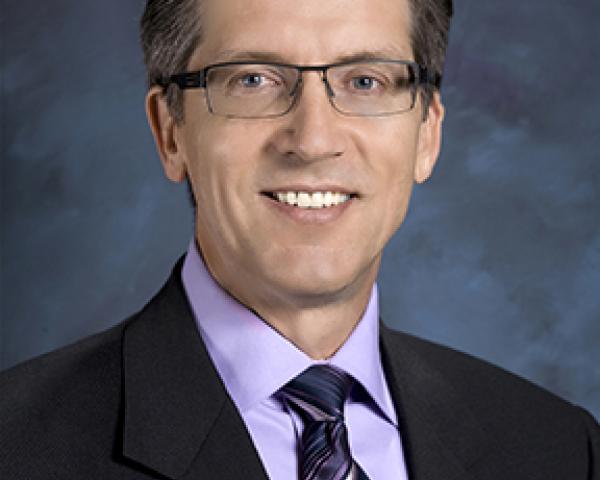Macro trends were already heading in that direction, and the ACA will add to the problem.
The question of whether, under the Affordable Care Act (ACA), there will be a physician shortage is not as simple as everyone would like. The most correct answer is yes -- but it depends a great deal on where you live and what kind of care you are trying to access.
Based on pre-existing macro economic trends, the shortage was already here -- the ACA adds pressure to the system.
The effect of the Baby Boomers
The largest trend related to healthcare in the U.S. is the aging of the Baby Boomers. Estimates indicate that more than 10,000 citizens per day will turn 65 for the next 16 or so years. Meanwhile, the ACA is estimated to add an additional 30 million citizens to the ranks of the insured over the next five to 10 years. Between the millions of Baby Boomers heading toward Medicare and the ACA enrolling millions of individuals in the expanded Medicaid plans and state and federal exchanges, there will be challenges to accessing primary care in a timely fashion. Anyone attempting to deflect the reality of these trends is being political.
Another macro trend is that nearly half of the 830,000 practicing physicians are currently over age 50; 16% are now age 65 or older; and more than one third of physicians are expected to retire in the next 15 years. Where will all the new physicians come from who are needed to help the millions of new insured individuals and the millions headed toward Medicare?
There are even more questions. Today, 30% of physicians are primary-care doctors, and 70% are specialists because that’s where the money has been for the last 30 years. You see, sickness has been the revenue model for the medical treatment system we call healthcare. Like many things in life, the answer is money – what’s the question?
Medical schools are incredibly expensive; residency training can take three to seven years; and the entire system has been set up to reward specialist care. Consequently, the ratio of practicing physicians in the U.S. has changed from 70% primary-care physicians and 30% specialists as healthcare has adapted its business model to disease management, prescriptions and treatments of chronic diseases.
Where you live also plays a big role in your physician shortage experience. Health Professional Shortage Area maps produced by the government indicate that more than 20% of Americans live in such an area. Affected states include Alabama, Louisiana, Mississippi, Arizona, New Mexico and Wyoming.
What does the future of our healthcare system hold?
The major change created by the ACA is the beginning of refocusing healthcare from a disease-management to health-promotion model and from a business based on quantity of treatment and fee-for-service to one based on quality of treatment, with compensation bundled and based on outcomes. Today, outcomes have limited financial consequences. Tomorrow, we will pay providers to care about the patient both before and after treatment, to improve outcomes, lower costs and emphasize the prevention of as many claims as possible.
The industry is slow to change, and there are many constituencies that prefer evolutionary change, to maximize potential profit margins along the way.
We will have more internationally trained physicians entering the U.S. to assist with the shortage. And, as healthcare emphasizes primary care, we will see more nurses, nurse practitioners, pharmacists and physicians assistants handling some of the routine preventive care. Many of these expanded roles for non-physicians will be determined on a state-by-state basis.
What are the key challenges of a physician shortage?
The challenges for the providers are many. The actual practice of medicine is slowly changing as the incentives are realigned to focus more on the patient and the quality of their outcomes. Hospitals will have to change their old-school business models of the one-stop shop or become obsolete. Many hospitals will go out of business because they are unwilling or unable to change. The specifics will depend on how many competing hospitals are in a particular city, how big the population is and what kind of insurance is paying the bill.
Once again, location will play a large part. The ebb and flow of physician availability will be affected by decisions from medical schools, Congress expanding budgets for more training, Medicare revisions and more changes coming from the ACA. On a more personal note, physicians will be influenced by quality-of-life choices, income needs, debt loads from medical school, entrepreneurial spirit, need for security and location.
Insured individuals, whether covered with Medicaid, group insurance or an individual policy, all have to change their coverage and, in many cases, their physician. As we will witness over the first three years of the ACA, nearly every insured person will have less coverage if they get sick, as a result of having more "skin in the game."
Many previously uninsured individuals will experience the illusion of the low-priced insurance policy, especially if they qualify for subsidies, only to discover that getting sick can be very expensive and that they will likely not receive care from the provider they anticipated.
Just as there are no one-size-fits-all healthcare solutions, there is no single answer to the problem of a looming doctor shortage. The experience will depend on where you live, what medical care you need and the kind of insurance plan through which you access your medical care.


